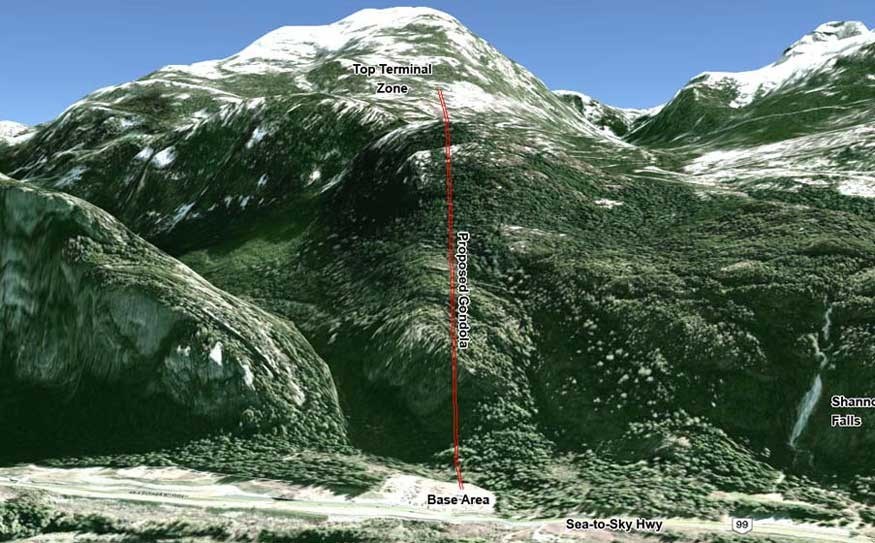With an estimated 300,000 visitors a year expected to take in the stunning views of Howe Sound, the proposed Sea to Sky Gondola south of Squamish has a local politician expressing concerns about safety costs for his district.
Maurice Freitag, the director of Area D of the Squamish-Lillooet Regional District, said in an interview that a doubling of the costs of emergency services by the District of Squamish (DOS) had him thinking about future charges once the gondola opens.
The challenge, he said, arose because the terminus at the top of the gondola with trails, a theatre and restaurant is located in Area D, while the parking lot area at highway level is part of the DOS. Area D uses emergency services supplied by the district and pays a fee annually.
The charge for the service rose from $18,000 in 2011 to $36,000 in 2012.
The project has passed its fourth reading at the DOS, said Freitag, while the SLRD passed its first reading by a 5-3 vote at its most recent meeting on Feb. 27.
"I'm behind this project, I see it as a good economic driver for the region," Freitag said. "But it goes through (in Squamish) with no amenities and very few things attached to it, and I asked a few city councillors in Squamish, 'Did you guys not take into consideration, the cost of potential emergencies?'"
He said he brought up this and other concerns both at the SLRD meeting and on six occasions at open houses and meetings in Squamish, and wanted more thought going into what ordinary costs would be for running the emergency services portion of the gondola facility. And he was unhappy that he had not had itemized reasons for the doubling of the charges from the DOS between last year and this year.
"From what I understand from my staff is that Squamish's emergency services incorporate search and rescue, Squamish's emergency program, earthquake and stuff like that, the auxiliary coastguard," he said. "So, of course, being from a business background, when I see a requisition double, (I think) regardless of what the whole number is, it's doubled!"
With just a single search and rescue potentially costing thousands of dollars, Freitag believes these questions need exploring long before the ground is broken on the project.
"The one thing that is in my hands is this, if we're going to send all these people up there and they're going to have their nice day out, and that's wonderful, but we need to have in place a plan to make sure that the majority of people who aren't equipped to head off into the more rugged extreme backcountry don't get lost or find themselves in that scenario."
He echoed the views of Pemberton Mayor Jordan Sturdy at the SLRD meeting, who said the project would need a plan in place similar to Whistler's in terms of emergency services for a tourism facility.
Freitag added that following the SLRD meeting he had received a note from Trevor Dunn and David Greenfield of GroundEffects, the proponents of the project, about the concerns and lauded their willingness to talk.
"They've been absolutely excellent at communicating to date, I foresee them coming back with a plan," he said.
Contacted on Tuesday, March 6, for an update on the situation, Freitag said in an email:
"All I can say at this point is that we have been in contact with DOS and we are working on the issue."




